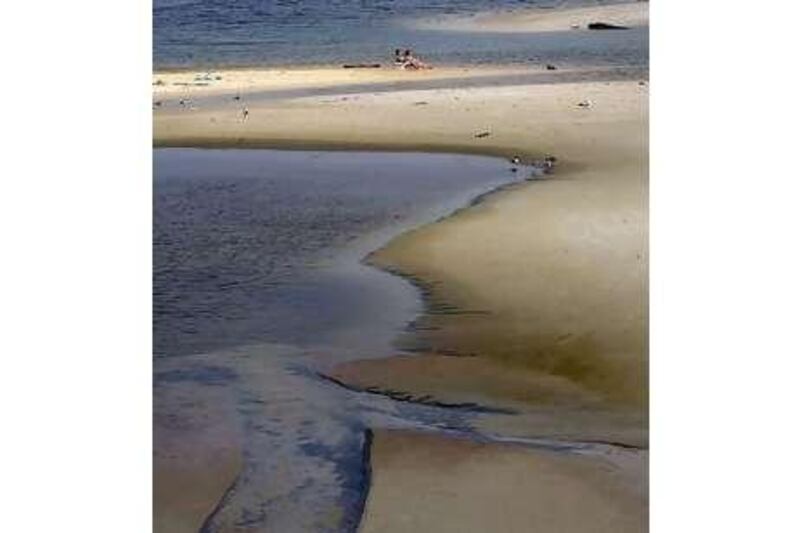The UAE oilfield services industry could be an unexpected beneficiary of the drilling moratorium in the Gulf of Mexico as companies such as Halliburton shift manpower and resources east. The international oilfield services group headquartered in Houston and Dubai, is preparing to relocate people and equipment to new exploration contracts in the eastern hemisphere from the Gulf of Mexico, where BP's damaged deep-water well continues to leak oil.
The US government's decision to impose a six-month moratorium on issuing licences for deep-water wells is a development with global implications. The UAE, in its capacity as a logistics centre for international offshore oil and gas services for the eastern hemisphere, stands to benefit. On Wednesday, Tim Probert, the president of global business lines for Halliburton, said Gulf of Mexico oil and gas operators were "working towards temporary abandonment of deep-water wells", in keeping with the US government directive.
"Operators with lease holdings internationally are looking at moving some of their vessels," he added. Those companies include most of the world's biggest international oil companies, such as BP, ExxonMobil and Royal Dutch Shell, which are among the principal clients for the services offered by Halliburton and its international rivals. Halliburton was "really assessing in a great deal of detail both resources and how we may best apply resources", Mr Probert said.
The US decree was most likely to affect "rig-based services that would generally go with the rig", specialised pressure equipment with "alternative markets in other deep-water regions" and technical staff, he said. In terms of Halliburton's human resources, "we're already making plans for temporary relocation to help us start up eastern-hemisphere contracts in the second half of 2010", Mr Probert said. "It's a bit of a silver lining in terms of staffing complex new contracts around the world.We believe the global market for hydrocarbons is going to continue to grow."
The implication was that international deep-water oil and gas exploration would continue apace in regions outside North America. This would not directly increase drilling in the Arabian Gulf, which is relatively shallow. On the other hand, more equipment fabrication and engineering jobs geared towards deep-water projects could be undertaken in yards and technical offices located on the Arabian Gulf coast.
As the region's most important trade and logistics centre, Dubai could be the biggest beneficiary. A number of major international oilfield contractors including Halliburton, Petrofac, Schlumberger, Baker Hughes and J Ray McDermott already have major facilities in the emirate. Abu Dhabi also stands to gain from an eastward shift in international deep-water drilling activity. Mubadala Development, a strategic investment company owned by the Abu Dhabi Government, for instance, has a joint venture with Petrofac to pursue regional oil and gas projects that might include deep-water exploration in areas such as the Caspian Sea.
Deep-water oil and gas exploration prospects that could be serviced conveniently from the UAE are located in the eastern Mediterranean, Caspian and Black seas and off the coasts of India and east Africa. Further afield but also accessible from the Emirates are the major deep-water oilfields of west African oil exporters such as Nigeria and Angola. tcarlisle@thenational.ae





